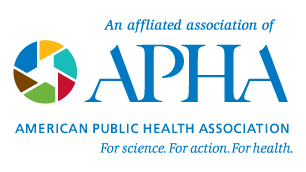Weight-Inclusive Health Section
The OPHA Board of Directors voted to approve the new Weight-Inclusive Health Section on Friday, March 15, 2024. BackgroundWeight-inclusive is in contrast to weight-centric. A weight-inclusive approach does not ask or require people to change the size or shape of their body. Rather than conflate weight with health or worthiness, we believe in a more holistic perspective of well-being that can be achieved by people in all shapes and sizes of bodies, if they so desire. We recognize that weight stigma and structural anti-fatness are detrimental to individual and population health and exacerbate long-standing health inequities. (See, for example, Hunger et al., 2020; and Pausé, 2017.) This is a cross-cutting issue that intersects with many aspects of health and public health and is an essential piece of public health anti-oppression justice work. (See in addition, for example, Daufin, E., 2019; Harrison, D.L., 2021; and, Strings, S., 2019.) There is growing interest in addressing weight stigma in public health, however clarity about what this means and what actions are needed is lacking. As such, weight-inclusive education and advocacy are timely, relevant and important for OPHA and for the larger public health community in Oregon. PurposeThe OPHA Mission is to advocate for policies that protect and promote health and health equity for all people in Oregon and to provide learning, collaboration, and leadership opportunities for public health professionals and the broader community. In alignment with the OPHA Mission noted above and with the purpose of Special Interest Sections outlined in the bylaws, this Section has the following goals:
Section Meetings TBD Section Leadership
Section MembershipFor active members, contact Program Assistant, Dana Merrill to become a member of this section. You can become a member for only $13, or you can change from your current section to this one. If you are not yet an OPHA member, sign up today and select Weight-Inclusive Health as your Special Interest Section. Section ResourcesSee proposal submitted and accepted by the OPHA Board. NewslettersReferencesCalogero RM, Tylka TL, Mensinger JL, Meadows A, Daníelsdóttir S. Recognizing the Fundamental Right to be Fat: A Weight-Inclusive Approach to Size Acceptance and Healing From Sizeism. Women Ther. 2018;0(0):1-23. doi:10.1080/02703149.2018.1524067 Campos P, Saguy A, Ernsberger P, Oliver E, Gaesser G. The epidemiology of overweight and obesity: Public health crisis or moral panic? Int J Epidemiol. 2006;35(1):55-60. doi:10.1093/ije/dyi254 Daufin, E. (2019). Thick sistahs and heavy disprivilege: Black women, intersectionality, Harrison, D. L. (2021). Belly of the beast: The politics of anti-fatness as anti-blackness. Hunger, J. M., Smith, J. P., & Tomiyama, A. J. (2020). An Evidence-Based Rationale O’Hara L, Taylor J. What’s Wrong With the ‘War on Obesity?’ A Narrative Review of the Weight-Centered Health Paradigm and Development of the 3C Framework to Build Critical Competency for a Paradigm Shift. SAGE Open. 2018;8(2). doi:10.1177/2158244018772888 Pausé, C. (2017). Borderline: The ethics of fat stigma in public health. Journal of Law, Strings, S. (2019). Fearing the Black Body: The Racial Origins of Fat Phobia. New York University Press. |

